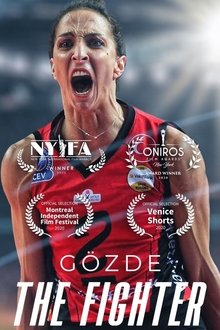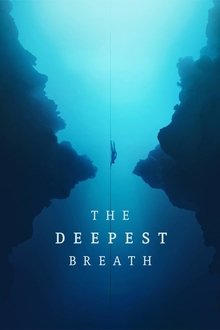Pablo Escobar was the richest, most powerful drug kingpin in the world, ruling the Medellin Cartel with an iron fist. Andres Escobar was the biggest soccer star in Colombia. The two were not related, but their fates were inextricably-and fatally-intertwined. Pablo's drug money had turned Andres' national team into South American champions, favored to win the 1994 World Cup in Los Angeles. It was there, in a game against the U.S., that Andres committed one of the most shocking mistakes in soccer history, scoring an "own goal" that eliminated his team from the competition and ultimately cost him his life. The Two Escobars is a riveting examination of the intersection of sports, crime, and politics.
Related Movies
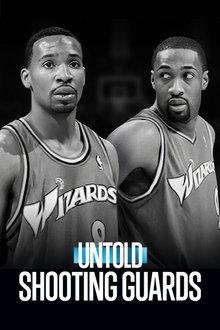
Untold: Shooting Guards (2025)
What really went down between Gilbert Arenas and Javaris Crittenton? This exposé unpacks how a gambling dispute led to guns drawn in an NBA locker room.
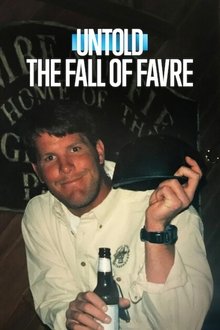
Untold: The Fall of Favre (2025)
This eye-opening documentary delves into Brett Favre's controversial career, the dark side of sports stardom and the scandals that marred his legacy.
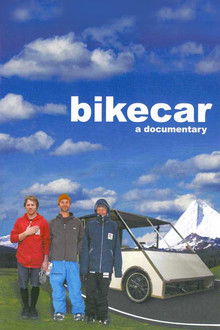
Bikecar (2006)
Travis Parker, Louie Fountain and Scotty Wittlake approached travel differently this past winter. Putting snowmobiles and 4x4s to shame, the crew traveled across the Northwest through Idaho, Washington and Oregon in a bikecar. A bikecar? One may ask. Yes, a four person pedal powered vehicle was the vessel of adventure this season. Pulling a trailer with snowboards and gear, the crew pedaled in search of snow. Documenting all the trials and tribulations of this trip was filmmaker Joey Fountain, formerly of Robot Food. Bikecar is a one of a kind documentary, which brings a new perspective to travel, adventure and snowboarding.
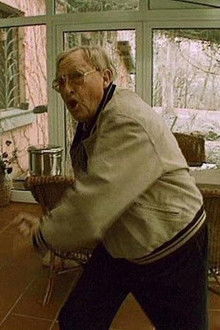
The Ball Is a Scumbag (2000)
"Sometimes the ball is bewitched," says legendary soccer coach Rudi Gutendorf. He's the one who would know, after having coached 6 first division soccer teams in Germany alone and countless others in 38 countries around the world.
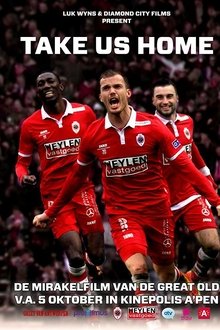
Take Us Home (2017)
For two years the filmmakers followed Royal Antwerp FC closely, recording how the 'Great Old' fought its way back to the highest soccer league after more than 12 years. A film about hope and disillusionment, sadness and euphoria of a soccer club with a loyal and fanatical legion of supporters.
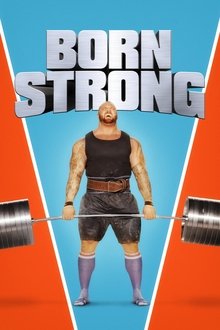
Born Strong (2017)
Born Strong is the story of the four strongest men on the planet. Each year, the Arnold Strongman Classic crowns the winner in the purest test of strength on the planet. This year’s Arnolds are unique with each of these four weighing more than 400 pounds. Lithuanian Zydrunas Savickas, 40, is the acknowledged Strongest Man Ever, who may have passed his prime. American Brian Shaw is the defending champion, a 6’8’, 425-pound giant who seems poised to take the crown. England’s Eddie Hall is “the hungry wolf, ” knocking on the door. “I’ll do anything, ” he says. “I’ll die, if I have to. ” Finally, there’s Icelander Hafthor Bjornsson, who plays the Mountain on Game of Thrones. He’s the youngest of the group, but with perhaps the greatest potential. “It’s great to see these Monsters, ” says Arnold Schwarzenegger, the host of the competition and a former bodybuilding champion. Born Strong revels in the drama when these remarkable giants clash.
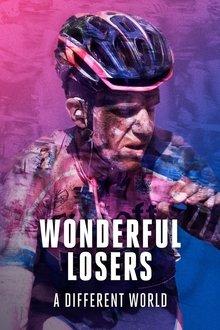
Wonderful Losers: A Different World (2017)
They're called water carriers, domestics, 'gregarios', 'Sancho Panzas' of professional cycling. Always at the back of the group, with no right for a personal victory. These wonderful losers are the true warriors of professional cycling.
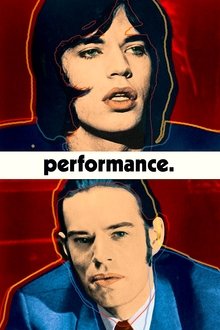
Performance (1970)
In underworld terms, Chas Devlin is a 'performer,' a gangster with a talent for violence and intimidation. Turner is a reclusive rock superstar. When Chas and Turner meet, their worlds collide—and the impact is both exotic and explosive.
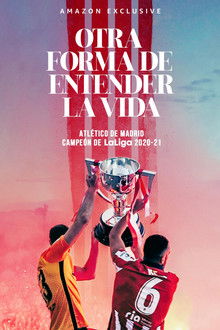
Otra forma de entender la vida (2021)
A documentary that goes over a historical year for Atlético Madrid until they became the champions of La Liga. Told from the inside with unseen footage and with the testimonies of the stars. With the special participation of Leiva and Joaquín Sabina, you will witness the birth of the song “Partido a Partido”.
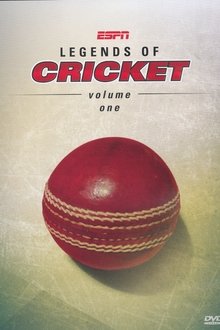
ESPN Legends of Cricket - Volume 1 (2012)
ESPN’s LEGENDS OF CRICKET journeys through the ages to profile the greatest individuals to have ever taken up the bat and ball. Chosen by an expert panel of their peers, this fascinating and seminal series explores the remarkable abilities of the chosen few who have truly transcended the game. From Sir Donald Bradman’s unrivalled mastery of the willow and Share Warne’s wizardry with the ball, to the poise and balance of Sachin Tendulkar, the swagger of Sir Garfield Sobers and Viv Richards and the sheer grit and determination embodied by Allan Border and Steve Waugh, this series offers rare insight into the celebrated careers of cricket’s 25 greatest champions. Featuring wonderful archival footage and in-depth interviews with leading players and commentators, ESPN’S Legends of Cricket shines a light on the enduring legends of our summer game.
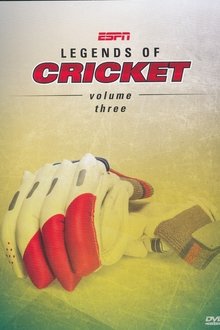
ESPN Legends of Cricket - Volume 3 (NaN)
ESPN’s LEGENDS OF CRICKET journeys through the ages to profile the greatest individuals to have ever taken up the bat and ball. Chosen by an expert panel of their peers, this fascinating and seminal series explores the remarkable abilities of the chosen few who have truly transcended the game. From Sir Donald Bradman’s unrivalled mastery of the willow and Share Warne’s wizardry with the ball, to the poise and balance of Sachin Tendulkar, the swagger of Sir Garfield Sobers and Viv Richards and the sheer grit and determination embodied by Allan Border and Steve Waugh, this series offers rare insight into the celebrated careers of cricket’s 25 greatest champions. Featuring wonderful archival footage and in-depth interviews with leading players and commentators, ESPN’S Legends of Cricket shines a light on the enduring legends of our summer game
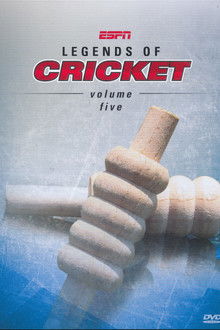
ESPN Legends of Cricket - Volume 5 (NaN)
ESPN’s LEGENDS OF CRICKET journeys through the ages to profile the greatest individuals to have ever taken up the bat and ball. Chosen by an expert panel of their peers, this fascinating and seminal series explores the remarkable abilities of the chosen few who have truly transcended the game. From Sir Donald Bradman’s unrivalled mastery of the willow and Share Warne’s wizardry with the ball, to the poise and balance of Sachin Tendulkar, the swagger of Sir Garfield Sobers and Viv Richards and the sheer grit and determination embodied by Allan Border and Steve Waugh, this series offers rare insight into the celebrated careers of cricket’s 25 greatest champions. Featuring wonderful archival footage and in-depth interviews with leading players and commentators, ESPN’S Legends of Cricket shines a light on the enduring legends of our summer game.
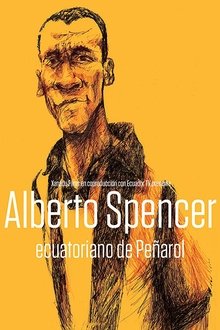
Alberto Spencer, Ecuatoriano de Peñarol (2014)
Documentary about Alberto Spencer, Ecuadorian-Uruguayan footballer, regarded as the best Ecuadorian footballer of all time.
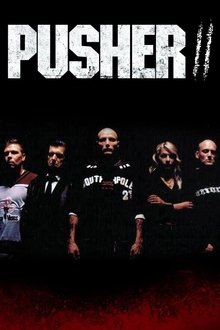
Pusher II (2004)
Tonny is released from prison - again. This time he has his mind set on changing his broken down life, but that is easier said than done.
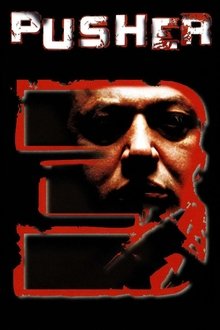
Pusher III (2005)
Milo is aging, he is planning his daughter's 25th birthday, and his shipment of heroin turns out to be 10,000 pills of ecstasy. When Milo tries to sell the pills anyway, all Hell breaks loose and his only chance is to ask for help from his ex-henchman and old friend Radovan.
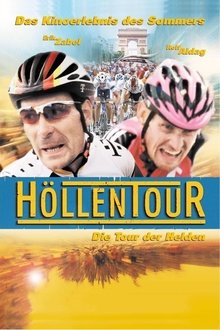
Hell on Wheels (2004)
Year after year hundreds of thousands of fans line the route of the Tour de France, cheering on their heroes and willing them to victory, while millions of viewers worldwide tune in on their televisions. Academy Award-winning director Pepe Danquart, fascinated by the spectacle of the three week race, chose to focus on the courage, the pain and the fear of the riders of the Tour. Training his lens on German superstar sprinter Eric Zabel and his loyal domestique Rolf Aldag, Danquart captures the thrill of the race and the teamwork behind the stars of the peleton. He also shines light on the Tour's supporting cast - the director sportifs, masseurs, and, of course, the wildly enthusiastic fans. Reveling in the stunning landscape - from the Alps to the Pyrenees to the Massif Central to Paris - and with a nice dollop of Le Tour's history, HELL ON WHEELS transcends the sport it celebrates to reveal an astonishing human endeavor.

The Debut (2014)
The Debut brings together a collective of riders with passion, creativity and relentless drive to make what they do their own every time they take to the water. Andy Kolb and Unit Parktech’s first film boasts jaw dragging action from some of the most influential riders of our time captured against breathtaking backdrops with the most advanced film production available. Shot across five continents and covering every aspect of cable and System 2.0 every rider has been pushed to their limits in order to showcase the sport at it’s most progressive and creative. As the riders push themselves and their riding, across the world, The Debut gives us a unique insight into their journey and who they really are!

Champions Of Europe: The Official Story Of The World's Greatest Football Competition (2006)
Champions of Europe is a celebration of 50 years of outstanding football competition as told by the clubs and players who made the contest so unforgettable. Featuring all the most memorable players, goals and performances from every European Cup final ever played, it also contains extended highlights and exclusive behind-the-scenes footage from the thrilling Liverpool v AC Milan final in Istanbul 2005. As the only official UEFA history of the competition, the DVD also offers unparallelled access to the big-name players with Cruyff, Beckenbauer, Zidane, Beckham, Eusebio, Charlton, Maldini, Gerrard and many more sharing their memories of the games and performances that made them legends.
